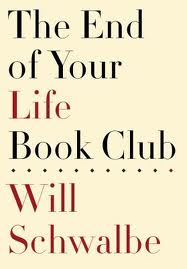First Sentences:
As a boy, I wanted to be a train. I didn't realize this was unusual -- that other kids played with trains, not as them.
They like to build tracks and have trains not fall off them. Watch them go through tunnels. I didn't understand that. What I liked was pretending my body was two hundred tons of unstoppable steel. Imagining I was pistons and valves and hydraulic compressors.
Description:
Oh, how Max Barry can tell a story. His Machine Man, set in the not too distant future, tells the absolutely riveting story of man's quest for perfection at the dawn of an age when such improvement might just be possible.
Charles Neumann, the central figure in the novel, works as a research scientist for Better Future, currently working on a boring project to test the melting point of polymers. An industrial accident involving the hydraulic "Clamp" leaves Neumann an amputee below his knee.
Fitted with the latest in prostheses issued by the hospital, he soon discovers that this artificial limb is woefully inadequate and cumbersome for even the basic needs of sitting and walking.
So he sets out to design his own model. And why not? He's smart, he's creative, and he has access to sophisticated tools and parts in his lab at Better Future. Certainly there is plenty of room for improvement in the world of prostheses that might bring him comfort and mobility, as well as profit to the company.
His own design for an artificial leg is revolutionary, a huge improvement over his hospital-issued version. This new model even proves superior to his remaining natural leg. Neumann finds it is now his healthy leg which holds him back, not the fully-functioning prostheses. This realization leads Neumann to thoughts of another encounter with the Clamp. Would two highly sophisticated artificial legs be preferable to his natural human legs?
His own design for an artificial leg is revolutionary, a huge improvement over his hospital-issued version. This new model even proves superior to his remaining natural leg. Neumann finds it is now his healthy leg which holds him back, not the fully-functioning prostheses. This realization leads Neumann to thoughts of another encounter with the Clamp. Would two highly sophisticated artificial legs be preferable to his natural human legs?
Neumann's soon must face questions regarding both the benefits and shortcomings of this new technology. How could two highly-functional prostheses affect not only his mobility but his mind as well? Are there other human body parts that can (or should) be improved through re-examination of purpose and wishful thinking? If so, how far should man head down the road of replacing the flawed, natural human body with new technology?
For me to write more would spoil the core of this fascinating novel. Suffice to say, Machine Man offers a new perspective on human bodies and their functionality in an age where computer programming, sophisticated materials, and creative minds come together in one terrific scenario.
It is a book that grabs you with great writing and pulls you through each fascinating idea of possibility and development heading on a crash course with the unknown. You will read it in one sitting, it's that compelling.
Fred
Asimov, Isaac. I, Robot
Science fiction stories by the master, tracing the first development of a primitive house-keeping robot to the robotic scientists behind the development to the ultimate in robot sophistication - a presidential candidate that no one can tell whether he is a robot or not.
See also The Rest of the Robots, Asimov's excellent sequel to I, Robot.






